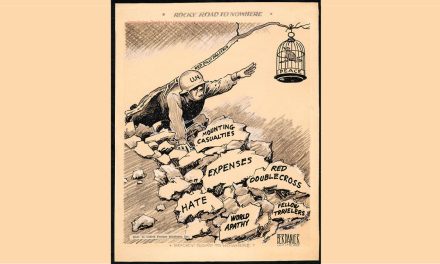
Healthcare: High Costs Force States to Cheat on Retiree Benefits
A handful of state governments are eliminating or reducing the health benefits they once offered to state workers.
The cuts come in response to growing medical costs, the aging of the American workforce, and new rules which force governments to be more transparent about how much they owe.
According to the latest report from the American Legislative Exchange Council (ALEC), nearly all states are unable to afford the retiree health benefits and pensions they promised employees.
The same report found that the average US pension is funded at about 35% of what it should be.
“Pension liabilities are really the existential financial threat facing state and local governments today,” says ALEC economist Jonathan Williams. “This is a huge crowding-out area for states, in that pension obligations will threaten future core government areas of spending such as healthcare, transportation, and education. And they also threaten future tax increases.”
Because the legal protections for pensions tend to be strong, officials in several states are taking aim at retiree benefits to cut down on debt. States like Texas, Michigan, and Connecticut have already pushed workers out of the system by increasing premiums, reducing benefits, and tightening eligibility requirements.
Kansas was more aggressive, announcing in 2017 its decision to charge retirees the full cost of healthcare coverage. The policy caused 75% of participants to drop out and pushed the state’s retiree healthcare liability down from $6.1 million to $508,000.
North Carolina, which struggles with a retiree healthcare liability of more than $28 billion, will stop offering retiree healthcare benefits to workers hired in 2021 and beyond.
—
While these cuts may be states’ only option to avoid bankruptcy, the changes are sure to make it harder for states to find employees.
“It’s going to make a difficult situation even more difficult,” says Charles Johnson, who works as a corrections official in North Carolina. The facility is currently looking to fill 100 positions.































The priorities of state governments is a continuing source of humor. They expect govt workers to work for less money than the private sector, donate 8-10% of monthly wage to retirement by law, that is supposed to be matched by employer but very rarely is. But they(govt) are willing to build bridges to nowhere and want more funds to maintain it. They need so much money that they are raising taxes every year without voter approval by calling the increases “fees”. Why don’t we address healthcare costs by controlling the costs of what providers charge as opposed to what is available to our citizens? As long as democrats are making decisions, this country will go right down the toilet.
To understand this issue you need to be aware our illustrious federal government created it! I worked for the Bell system, AT&T (the original real AT&T), for over 32 years. Our COMPANY pensions were funded 100% until the Feds changed the rules allowing corporations greatly enhance leeway on acces and uses of pensions funds. After the rules were change the chairman of AT&T, Robert Allen, managed to pretty well decimate pension funds by several really stupid business moves.
Guess corporation wanted to be able to legally pull the stunts that were prevalent in union controlled pensions.
Obama/RobertsCare solved all this. Remember?
Medicare is what the rest of us get, why are state workers expect to get 100% state paid heathcare when they can retire so early. They got so many holidays and vacation days its not even funny. Retire at 65 no pensions till 65 no free healthcare either. Teachers are even worst with benefits. Work about one half a year total with all the time off they get and get a huge retirement.With way too many perks and state paid benefits. Go into a real job and see what you get after 40 yrs of really working, zilch.